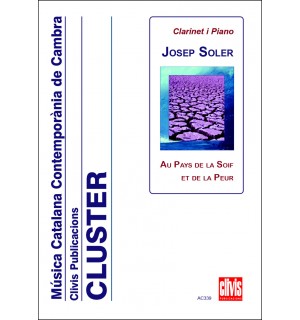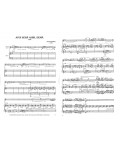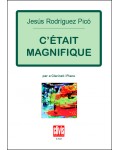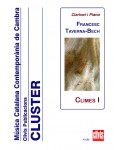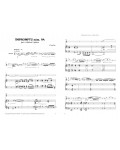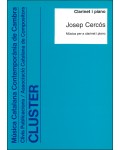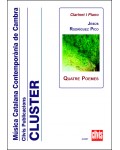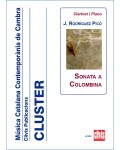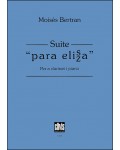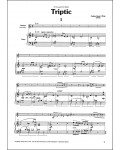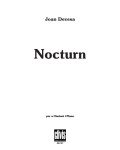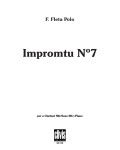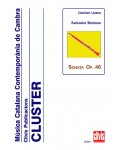
No products
Prices are tax included
Product successfully added to your shopping cart
There are 0 items in your cart. There is 1 item in your cart.
- English
- Castellano
- Català
Au pays de la soif et de la peur
DAC339
The work Au pays de la soif et de la peur is wonderfully expressive and unfolds in slow movements, making use of the full breadth of the two instruments’ ranges. Although he does not seek virtuosity, the performance of the work demands the utmost of performers, and above all, requires an extreme rapport.
| Period | 20th Century |
| Instruments | Clarinet, piano |
| Pages | 30 |
| Time | 10 min |
| Contents | Score and part |
| ISMN | 979-0-3502-0632-0 |
| Price of print edition | 17,20€ |
| Edition | Digital |
In 1995, Josep Soler composed two works under the same title: this piece for clarinet and piano and another for two pianos based on a theme from Beethoven’s Quartet op. 130. Both works were entitled Au pays de la soif et de la peur (In the land of thirst and fear), a title borrowed from an etching by French painter George Rouault (1871-1958). Between 1922 and 1927, Rouault undertook a series of 58 etchings concerning death and the afterlife, some inspired by religious motifs and all accompanied by a statement, many of them taken from the Bible. The series of etchings was entitled with the generic name Miserere. The sentence Au pays de la soif et de la peur is engraved in plate number 26 and, like the majority of the etchings in this series, it displays sad, desolate characters who are seemingly questioning themselves about the afterlife.
Josep Soler’s work for clarinet and piano, which draws its inspiration from this etching, is notable in length (the recording edited by Anacrusi in 2001 is over 20 minutes long). It is dedicated to clarinettist Joan Pere Gil who performed it for the first time in public in Barcelona on 23 November, 1996. The work is wonderfully expressive and unfolds in slow movements, making use of the full breadth of the two instruments’ ranges. Although he does not seek virtuosity, the performance of the work demands the utmost of performers, and above all, requires an extreme rapport that forces the musician to face the work’s subject matter and its philosophical (or spiritual) background from the same perspective.
David Puertas

